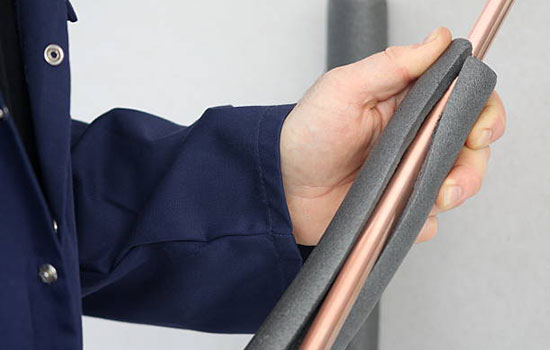Prepare Your Pipes for Winter
If you've never had to deal with burst pipes, consider yourself lucky. But it takes more than luck to protect pipes from a hard freeze. As anyone who has experienced this can tell you, frozen pipes should be avoided at all costs. When pipes freeze, things can quickly go from bad to worse. The reality sets in when nothing comes out of your faucets - that means no water for drinking, cooking or bathing. And this is just the tip of the iceberg.
As temperatures climb, the ice thaws and you go from having no water to having too much water when ruptured pipes spew water into places you don’t want it. And, if you happen to be away at work - or on vacation - the costs to repair the damage can be astronomical.

Here are some things you can do to prevent pipe damage during a freeze.
- Insulate any spaces where pipes are prone to freezing, paying special attention to:
- pipes that have frozen in the past
- outside hose connections
- pipes in crawl spaces
- indoor pipes running through cold areas or near an outside wall
- When necessary, wrap pipes in thermostat-controlled, UL-approved electrical heat tape.
- Disconnect all garden hoses from outdoor hose bibs.
- If you have a sprinkler system, turn it off and drain the pipes. If you aren't comfortable doing this yourself, call a contractor for help.
- Don’t set your home's thermostat below 55 degrees Fahrenheit (13 degrees Celsius).
- Open all interior room doors to allow heat to circulate throughout your home.
- Open your cabinet doors under sinks in your bathrooms and kitchen.
- During hard freezes, turn on hot and cold faucets to allow a small stream of water (about the diameter of a pencil) to run. Running water freezes less rapidly than sitting water.
- Be sure everyone in the house knows where the main water shut-off valve is and how to operate it.
These tips will help you prepare for Old Man Winter!












